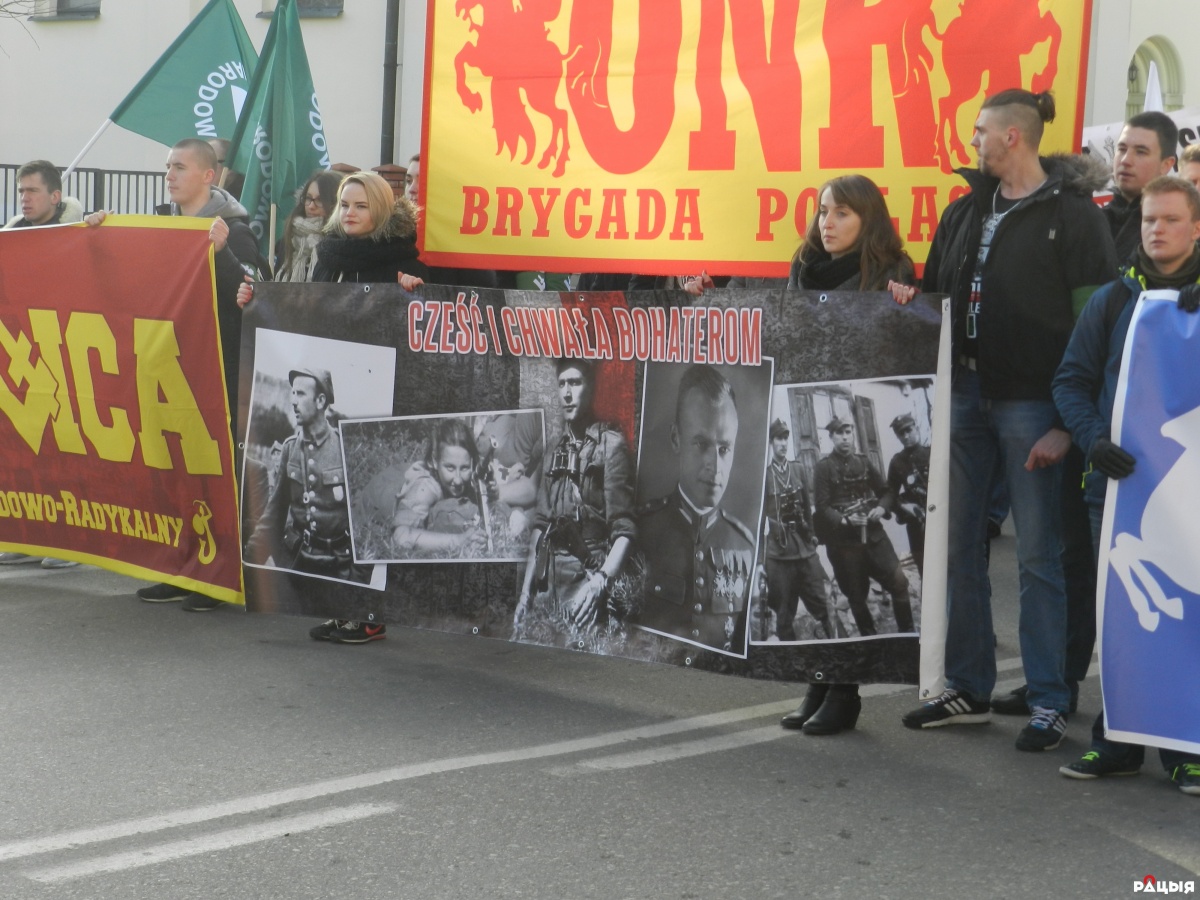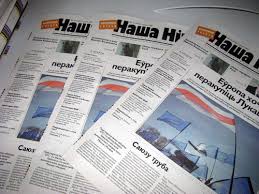Gas Rebate, New Silk Road, Treasure Hunting – Belarus State Press Digest

Photo: belta.by
The Belarusian authorities are putting all their energy into combating the deepening economic crisis.
They have released corrupt officials sentenced to prison terms and appointed them to manage bankrupt state enterprises. The government is seeking solutions to the problem of the growing black market for alcohol, which brings huge losses to a lucrative state-owned business.
Externally, the authorities are negotiating a new gas rebate from Russia and trying to find a place for Belarus in the Chinese New Silk Road project.
All of this and more in the latest edition of State Press Digest.
Politics
Lukashenka appoints officials charged with corruption to manage desperate enterprises. Belarus Segodnya discusses Lukashenka's recent decision to release corrupt officials from prison and appoint them to head up and save desperate state enterprises. The newspaper says that a state manager who committed an offence should not be lost from society. The author draws comparisons with the Stalin era, when repressed officials were given a chance to prove their devotion to the state.
These officials’ experience and skills can be used for the benefit of the people. The author also gives a few counter arguments: not all offenders receive this chance, it can damage the fight against corruption, it can be an example of corrupt ties within the elite, and become good material for the opposition to criticise the authorities.
Belarus wants to a place on China’s New Silk Road. Belarus Segodnya quotes Lukashenka’s interview with China Central Television. “We expect the most serious investments here in Belarus, we need to create companies that will produce a new generation of commodities. Belarus is well suited for this purpose – it has an extensive infrastructure and can transport goods in all directions, to the EU and the Eurasian Union. The project is open for investors from all over the world, and it is not built against somebody's interests. The project should unite economies and trade, and later also cultures and people”. Belarus is attempting to find its niche in the New Silk Road projects and is currently developing an industrial park called Great Stone jointly with China.
 Belarus condemns commemoration of Polish fighters guilty of the genocide of ethnic Belarusians. Respublika criticises the decision of the Polish authorities to allow a nationalist march in borderland Hajnaŭka which has a significant Belarusian population. The march commemorated the Polish fighters who struggled with the establishment of communist rule in Poland after World War II.
Belarus condemns commemoration of Polish fighters guilty of the genocide of ethnic Belarusians. Respublika criticises the decision of the Polish authorities to allow a nationalist march in borderland Hajnaŭka which has a significant Belarusian population. The march commemorated the Polish fighters who struggled with the establishment of communist rule in Poland after World War II.
Many of their activities were aimed at ethnic Belarusians who were regarded as supporters of communism. A squad under command of Romuald “Bury” Rais committed mass killing of the local Orthodox population in 1945-1948.
The paper says that Poland has the right to interpret history and form its own state ideology, but glorification of mass killing is unacceptable and the Belarusian authorities should support the local Belarusian minority to preserve its traditions and identity.
Economy
Minsk wants a rebate on Russian gas price. Soyuznoye Veche reports on the negotiations between Belarus and Russia on the gas price discount. At the moment Belarus enjoys the lowest gas price among all importers of this Russian resource, but Minsk expects yet another rebate of $10 per 1,000m3.
Deputy Prime Minister Uladzimir Siamaška says that a new discount will help to reduce tariffs on energy for the production sector of the Belarusian economy. At the moment Belarusian producers work in unequal conditions with their Russian counterparts, and hence cannot compete on the single market of the Eurasian Economic Union.
The authorities fight with the shadow alcohol market. The number of offences related to illegal alcohol trafficking increased 4.5 times in 2015, Respublika reports. In total police confiscated around 700,000 litres of illicit alcohol. However, this represents only a small part of the market, which the Ministry of the Interior estimates to total 50m litres. Virtually all traffic comes to Belarus from Russia, as the countries have no customs control between them.
The author claims that recent measures to restrict alcohol consumption have only driven it underground. To tackle the problem, he suggests removing restrictions and cutting the price in order to minimise the price gap between legal and illegal alcohol. He also speaks in favour of the internet trade in alcohol – a step which the Ministry of the Interior recently called a “diabolical idea”.
Society
Women dominate in the state bureaucracy, but only at mid and low levels. Zviazda newspaper publishes statistics on Belarusian women dedicated to International Women’s Day. Women make up 53.5 per cent of Belarus' population, and 78 per cent of women live in urban areas, with an average age of 42 years. 23 per cent of them work in industry, 18 per cent in education, 14 per cent in trade, 13 per cent in healthcare and social services, and 8 per cent in agriculture and forestry.
30 per cent of women have higher education and 42 per cent professional education. 35 per cent of females are unemployed, and they earn 23 per cent less than males on average. Women occupy 30 per cent of seats in parliament, 56 per cent in local executive and self-government bodies and account for 70 per cent of all civil servants.
Culture
 A new presidential edict outlaws treasure hunting. Narodnaya Gazeta discusses illegal treasure hunting and the new edict No. 485 targeting this problem. The edict bans unsanctioned searching for, selling and buying of archaeological objects.
A new presidential edict outlaws treasure hunting. Narodnaya Gazeta discusses illegal treasure hunting and the new edict No. 485 targeting this problem. The edict bans unsanctioned searching for, selling and buying of archaeological objects.
Earlier the police only showed interest in those digging up old weapons and ammunition. According to the law on protection of cultural heritage, the finder of treasure gets only 25 per cent of its value, the rest going to the state.
Archaeologist from national academy of sciences Vadzim Košman says the edict should have been introduced 15 years ago. During this period many high-tech devices appeared on the market and a great deal of treasure was dug up, before disappearing.
When looking through internet forums dedicated to treasure hunting, Košman is often shocked by the unique findings which may be forever lost from science. However, many amateurs say the edict is unfair. It should punish vandals who destroy burials, and not people walking in the fields with metal detectors.
The State Press Digest is based on review of state-controlled publications in Belarus. Freedom of the press in Belarus remains restricted and state media convey primarily the point of view of the Belarusian authorities. This review attempts to give the English-speaking audience a better understanding of how Belarusian state media shape public opinion in the country.




